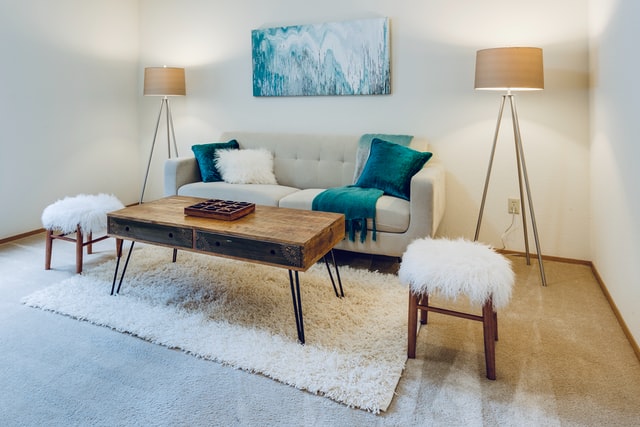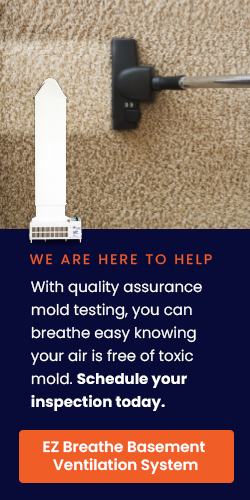More and more people are looking to finish their basements to increase overall property value and expand their space. It is still a common practice to finish a basement with carpeting, but this is not the best course of action. Carpeting and basement simply don’t mix. Just as you wouldn’t want carpeting at the base of a shower, you should avoid carpeting in your basement because of increased moisture.
Basement Carpeting
Carpeting is prone to mold through a moisture wicking process called capillary action that occurs in all basement foundations. As moisture wicks up from the foundation, it evaporates, hence the reason why basements maintain higher humidity than elsewhere in the home. Once a carpet, area rug or a pad is placed on top of the cement foundation, it will begin absorbing this excess moisture. When excess organic matter such as dirt, dust, skin cells, and pet dander are added to the mix mold growth occurs. Carpet manufactures sell the concept that the fibers are mold resistant, which many are, but it’s the imbedded organic matter that promotes biological growth. Furthermore, basements without proper dehumidification will exasperate the issue when the relative humidity exceeds 55%. Hidden moisture within the carpeting will cause foul odors.
MVOCs
These odors are actually a chemical or microbial volatile organic compound (MVOC). The mal-odor results from off-gassing during the biological processes causing eye, nose and throat irritation. These harmful MVOCs are a clear indicator that there is an indoor air quality issue which can cause adverse health effects even without the presence of elevated mold spores. This issue becomes significantly more serious when pathogenic spores are present, as they lead to acute or chronic diseases. If the mold and bad odors aren’t enough to discourage you from carpeting a basement, consider the inevitable dust mite explosion and bacterial proliferation within the fibers.
Recommendations
IndoorDoctor recommends a synthetic floor system like a soft tile or laminate to decrease the ultrafine particulates and toxic mold spores. Be sure to control the humidity throughout the basement below 45% with supplemental dehumidification. For most New England basements a typical 60 pint dehumidifier sold at a hardware store is insufficient to sustain low humidity during summer months. The larger dehumidifiers like the Santa Fe, Sani-Dry or Wet Basement models are much more effective at controlling the overall humidity throughout the basement. Ventilation systems like E-Z Breathe (www.ezbreathe.com) will further assist with humidity, odor, radon and spore reduction without any added maintenance. When retrofitting your basement be safe and consider the air you and your family will breathe.






